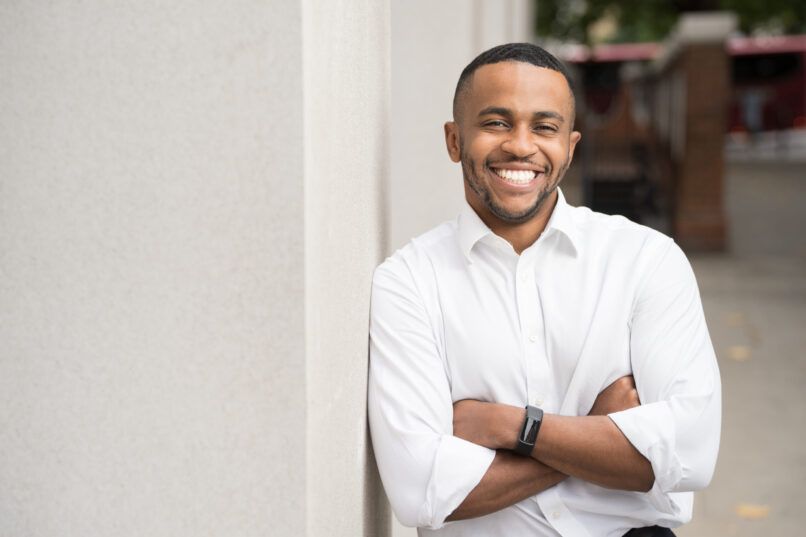October is Black History Month in the UK, providing the opportunity to celebrate the contributions of Black individuals and communities throughout society. This year, the theme for Black History Month is Reclaiming Narratives, an opportunity to shine a light on Black stories and voices across society to inspire and educate future generations.
We spoke to Unlocked Graduates Ambassador and current Board Member Nathan White, who explained what Black History Month means to him, as he shared his experiences of his time on the Unlocked programme and as an officer in a Young Offender Institution.

Why did you join Unlocked?
I hadn’t initially thought about being a prison officer, but I spoke to someone from Unlocked at a recruitment fair and thought it sounded really interesting. It was the first job I saw that was focused on helping people to change their lives. And the main motivation within that was the overrepresentation of young Black men in the prison system. I just wanted to do what I could to be a positive role model and help make change where I could.
From your experience, how important is representation in prisons?
Representation is such an important thing – just seeing positive role models who look like you. I was able to have a lot of conversations with some in my prison that other members of staff might not have been able to. I remember one particular boy I worked with started writing poetry and reading it to me, and we were having really in-depth discussions. The small things can make a big difference, even day-to-day interactions, like understanding hair, language and references.
What does Black History Month mean to you, particularly in the context of the prison officer role?
It’s an opportunity to present an alternative narrative. A lot of the boys I worked with were unaware of so much history that could be really powerful for them, and they didn’t know what so many people that looked like them had done. Knowing what people from a similar background to you have achieved can really change how you view yourself. It’s also a way to get people interested in education because it relates to them. But it’s important to make it relevant as well. One member of staff I worked with noted that there was often a focus on historical figures on Black history posters; it is important to also draw attention to people that those in prison know and can relate to.
You spent two years as a frontline officer. Did you notice any changes in conversations about diversity and inclusion in this time?
During my time on the landings, I became more aware of networks and groups focusing on diversity and inclusion. I worked in a prison that was quite diverse in terms of staff, and it wasn’t an environment where you couldn’t talk about these issues, but I wouldn’t have always felt comfortable talking about it right at the start. By the end of my time on the landings, there were more conversations about it.
Now that you are a member of the Unlocked board, what role do you think Unlocked can play in making change regarding diversity and inclusion in the prison service?
I was a member of Unlocked’s inaugural Diversity and Inclusion Advisory Group while I was still a participant, and I was really surprised by how transparent and proactive Unlocked were in dealing with things. You would see action taken between meetings, and that was really empowering in terms of change. It made me realise that I enjoyed having conversations like that: what is the problem, how are we going to solve it.
Those experiences were really useful when there was the opportunity to join the Board. I felt like my voice would actually be heard, and it was also important for me to stay part of the mission even though I had left the prison service. In discussions around disparities, there is an acknowledgement that it’s not a moment, it’s an ongoing conversation, and that’s been really encouraging. Constantly thinking “what can we do better” is making a huge difference. Unlocked does a lot just by recruiting the people that they do and supporting them; empowering people to be themselves and express themselves in an environment where it doesn’t always feel like you can.
What would you say to those who may be considering joining the prison service?
It can be hard, but if you want to change things you have to find a way into the system to change it. By being there, you can be part of the change. Small things like having staff that prisoners can be open with and talk to can make such a difference. Like any environment, you need the diversity of experiences and thoughts to solve different problems.
Unlocked Graduates is committed to recruiting diverse cohorts of new prison officers, and we believe that it is vital that the prison workforce more accurately reflects the prison population.
Black prisoners remain significantly over-represented within the prison population, representing 12% of the total prison population according to the Prison Reform Trust. Around 4% of prison officers identify as Black.